Flour and semolina
The perfect flour for cakes, pizza and pasta
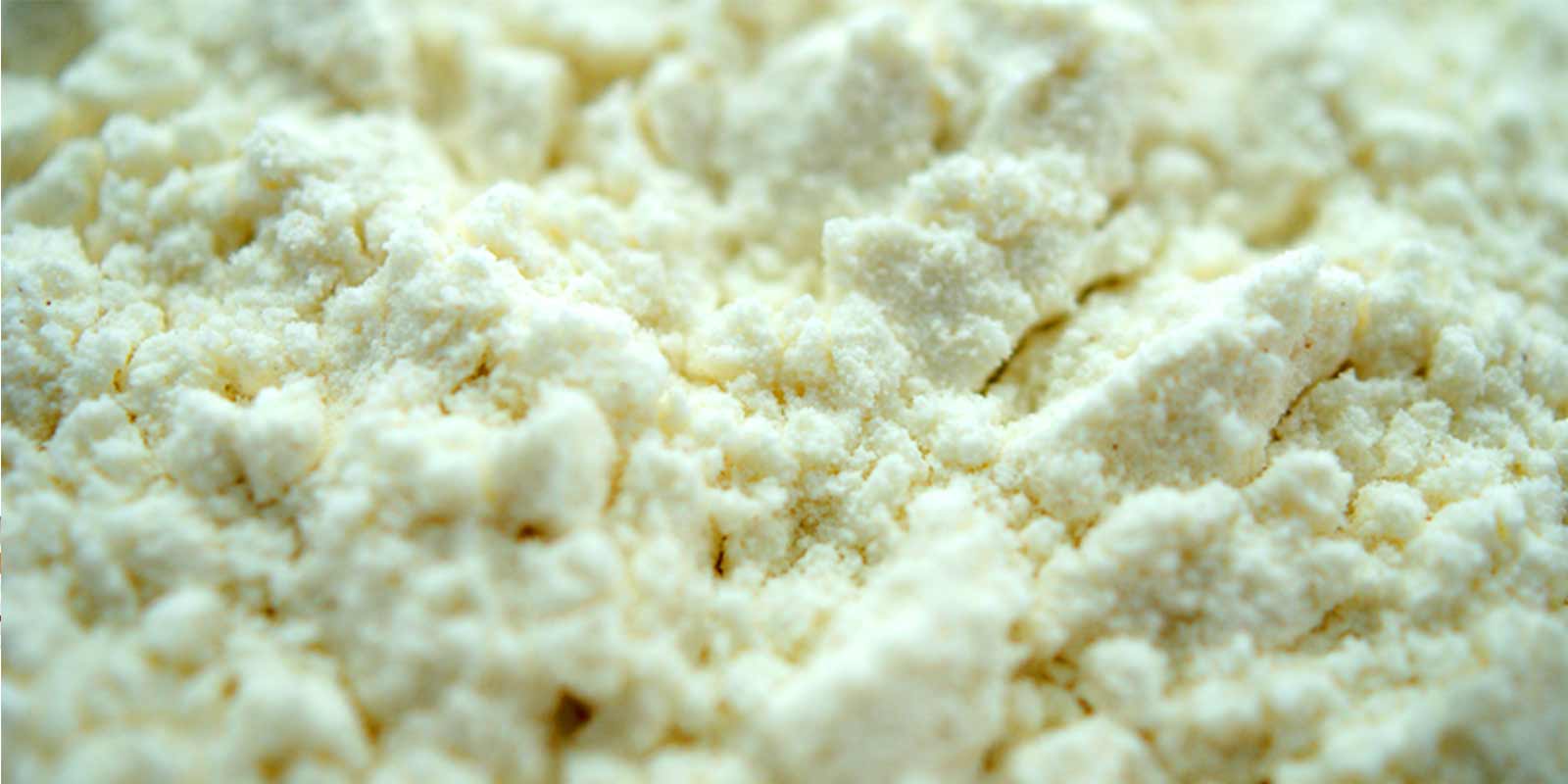

Flour, semolina, dough mix, durum wheat semolina, puff pastry, corn flour, smoking flour, rice flour, soy flour, wholemeal flour, buckwheat groats, instant flour, tapioca flour, pasta flour, etc.
Flour from the granite stone mill
Three generations work together in the old mill in Langhe. Slowly and unmixed, the finest flours are ground here between heavy granite stones. Each flour is intended for special preparations, be it pasta, yeast dough, pizza or breadsticks. Grain and mill are certified organic.
Mulino Marino`s flour goes through ten mealtimes. Each run makes the product finer and works towards its future freeness, the art of doing it is not to overdo it. However, the difference to conventional flour is in the way of processing. An industrially standardized wheat flour, for example, contains up to five different varieties, which in the end become what we find on the shelf in the supermarket. Mulino Marino can grind up to 20 tons of flour per day, Italy`s largest mill grinds about 400. For Fausto and his family there is always the claim to produce the best possible result. Optimal raw material is transformed into a delicious, nutritious flour.
copyright text: viani.de
Mulino Marino, The Mill in Piedmont.
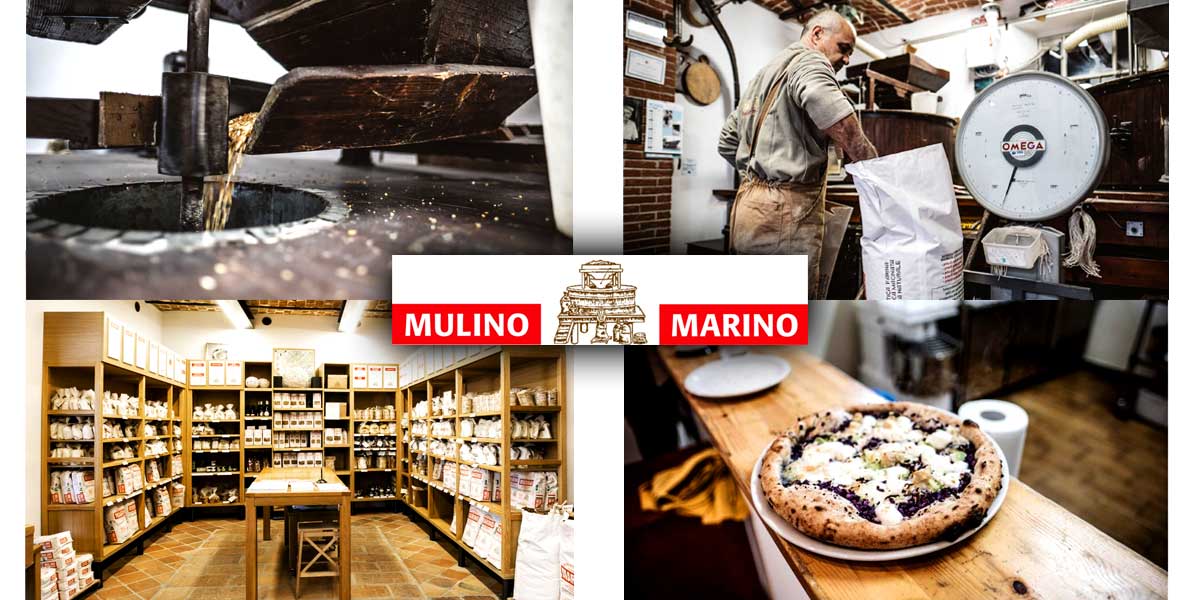
copyright photo: mulinomarino.it
Mulino Marino, The Mill in Piedmont.
For this we produce organic flours and grind them with natural stone. We produce colors, not works of art. Our colors are our flours, the artworks are bread, pizza, biscuits, cakes, breadsticks, noodles. For the success of a painting, it is very important that the colors are of excellent quality and that they are in the hands of an artist who knows how to improve and use them to the fullest.
We are artisans and we make artisanal flour that does not have an improver, is not standardized and therefore slightly different in each season ... like nature, like wheat and like humans. Those who make wine have the task of mirroring the grapes produced by the vines in the bottle. Our flours are the mirror of wheat ears in the field.
Quality raw material: This is our first secret.
Slow grinding, that`s the second. Natural (and not artificial) stones keep the flour alive, with fibers, water-soluble vitamins and all the trace elements that nature has brought into the grain.
copyright text: mulinomarino.it
Manitoba flour from the Hofbräuhaus - art mill
Already on the wooden city model Jakob Sandner of 1570 stands on the site of today`s mill a malt mill. After the Hofbräuhaus had moved from the Alter Hof to the Platzl, a new malt house was built in 1677, behind the city wall at the Kosttor. In 1703, Prince-Elector Max Emanuel had a malt-mill with 4 courses built. In the 19th century, the mill is called royal malt mill and is an integral part of the Royal White Brewery at Platzl. In the years after 1870, a new brewery was built on the Inner Wiener Straße in Haidhausen. The old brewery buildings on the Platzl are demolished, a new large-scale restaurant is created, the present-day Hofbräuhaus. The malt mill with hydropower remains and is sold privately. Now the old refineries are replaced by an innovative technology - the roller chairs. The mill is converted into an art mill and henceforth produces light flour from wheat. In 1921, Jakob Blum, a miller from the Palatinate, acquires the mill. The bombing of the Second World War on Munich survives the mill almost undamaged. In 1967 she loses her hydropower in the abandonment of almost all Munich city streams and has been working with electricity ever since. Today, the Hofbräuhaus-Kunstmühle is the only producing mill in Greater Munich. It is in 4th generation of the family Blum. The mill has been home to a multi-purpose shop since 1988, where all products of the Hofbräuhaus-Kunstmühle can be purchased by households and large consumers. In 2010, a bakery was set up in the building, the bakery E. Knapp and R. Wenig, in the traditional Munich biscuits produced and sold.
copyright text: hb-kunstmuehle.de
Manitoba flour from the Hofbrauhaus - Kunstmuhle
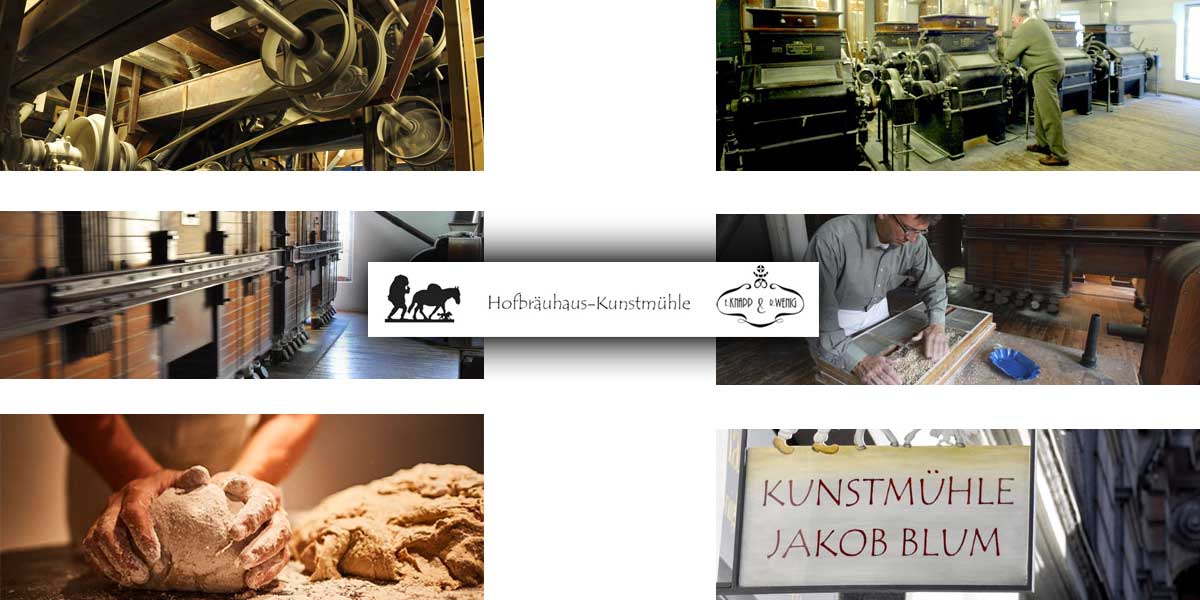
copyright photo: hb-kunstmuehle.de
The Blattert Mill
We at Blattert Muhle are committed to fresh, diverse and natural food production.
We source most of our raw materials directly from farmers in our region. We do not use any preservatives. For our customers, this means above all a healthy and extremely tasty diet. In addition to the wide range of natural food items from our company, we attach particular importance to the production of high-quality baking ingredients for bakers and householders.
The mill in your neighborhood is full of surprises. Milling has been a tradition for centuries. Experience the journey from grain to flour. In our mill we consciously place emphasis on multi-stage and gentle grinding of the valuable grain. Holistic ecological thinking and a closeness to nature are a matter of course for our mill. This begins with the purchase of the grain and continues through processing and packaging. A regionally transparent production. A promise that convinces our customers!
Our mill produces flour and grain products of the highest quality. They are the origin of many culinary delicacies.
copyright text: blattert-muehle.de
-

Manitoba flour, from elite wheat
1 kg € 4,32 * (€ 4,32 / kg)
NOW AVAILABLE NOW AVAILABLE Delivery of the goods within 36 hours of order and successful payment. Please also note the information on payment and shipping.item number: 133652.5kg € 8,29 * (€ 3,32 / kg)
NOW AVAILABLE Delivery of the goods within 36 hours of order and successful payment. Please also note the information on payment and shipping.item number: 133652.5kg € 8,29 * (€ 3,32 / kg)
NOW AVAILABLE NOW AVAILABLE Delivery of the goods within 36 hours of order and successful payment. Please also note the information on payment and shipping.item number: 13366
NOW AVAILABLE Delivery of the goods within 36 hours of order and successful payment. Please also note the information on payment and shipping.item number: 13366 -

Flour Type 405 white flour, wheat flour, leaves mill
2.5 kg € 6,52 * (€ 2,61 / kg)
NOW AVAILABLE NOW AVAILABLE Delivery of the goods within 36 hours of order and successful payment. Please also note the information on payment and shipping.item number: 33150
NOW AVAILABLE Delivery of the goods within 36 hours of order and successful payment. Please also note the information on payment and shipping.item number: 33150 -
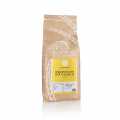
Haze wheat flour, double-grip, for spaetzle / strudel, Blattert Mühle
2.5 kg € 6,69 * (€ 2,68 / kg)
NOW AVAILABLE NOW AVAILABLE Delivery of the goods within 36 hours of order and successful payment. Please also note the information on payment and shipping.item number: 33151
NOW AVAILABLE Delivery of the goods within 36 hours of order and successful payment. Please also note the information on payment and shipping.item number: 33151 -
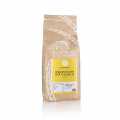
Flour type 550, wheat flour, plaited flour, Blattert mill
2.5 kg € 6,41 * (€ 2,56 / kg)
NOW AVAILABLE NOW AVAILABLE Delivery of the goods within 36 hours of order and successful payment. Please also note the information on payment and shipping.item number: 33152
NOW AVAILABLE Delivery of the goods within 36 hours of order and successful payment. Please also note the information on payment and shipping.item number: 33152 -
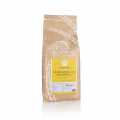
Flour Type 1050, Wheat Flour, Blattert Mühle
2.5 kg € 6,52 * (€ 2,61 / kg)
NOW AVAILABLE NOW AVAILABLE Delivery of the goods within 36 hours of order and successful payment. Please also note the information on payment and shipping.item number: 33153
NOW AVAILABLE Delivery of the goods within 36 hours of order and successful payment. Please also note the information on payment and shipping.item number: 33153 -
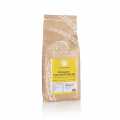
Rye wholemeal flour, leaves mill
2.5 kg € 7,40 * (€ 2,96 / kg)
NOW AVAILABLE NOW AVAILABLE Delivery of the goods within 36 hours of order and successful payment. Please also note the information on payment and shipping.item number: 33154
NOW AVAILABLE Delivery of the goods within 36 hours of order and successful payment. Please also note the information on payment and shipping.item number: 33154 -

Blattert Mühle wholegrain rye flour
1 kg € 2,93 * (€ 2,93 / kg)
NOW AVAILABLE NOW AVAILABLE Delivery of the goods within 36 hours of order and successful payment. Please also note the information on payment and shipping.item number: 34619
NOW AVAILABLE Delivery of the goods within 36 hours of order and successful payment. Please also note the information on payment and shipping.item number: 34619 -
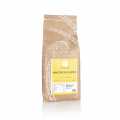
Durum wheat semolina, Blattert Mühle
2.5 kg € 10,55 * (€ 4,22 / kg)
NOW AVAILABLE NOW AVAILABLE Delivery of the goods within 36 hours of order and successful payment. Please also note the information on payment and shipping.item number: 34620
NOW AVAILABLE Delivery of the goods within 36 hours of order and successful payment. Please also note the information on payment and shipping.item number: 34620 -

Einkorn flour, light, Blattert Mühle
1 kg € 7,14 * (€ 7,14 / kg)
NOW AVAILABLE NOW AVAILABLE Delivery of the goods within 36 hours of order and successful payment. Please also note the information on payment and shipping.item number: 36710
NOW AVAILABLE Delivery of the goods within 36 hours of order and successful payment. Please also note the information on payment and shipping.item number: 36710 -

Blattert Mühle Wholemeal Wheat Flour
1 kg € 3,67 * (€ 3,67 / kg)
NOW AVAILABLE NOW AVAILABLE Delivery of the goods within 36 hours of order and successful payment. Please also note the information on payment and shipping.item number: 37046
NOW AVAILABLE Delivery of the goods within 36 hours of order and successful payment. Please also note the information on payment and shipping.item number: 37046 -

Blattert Mühle Wholemeal Wheat Flour
5kg € 14,56 * (€ 2,91 / kg)
NOW AVAILABLE NOW AVAILABLE Delivery of the goods within 36 hours of order and successful payment. Please also note the information on payment and shipping.item number: 37047
NOW AVAILABLE Delivery of the goods within 36 hours of order and successful payment. Please also note the information on payment and shipping.item number: 37047 -

Blattert Mühle Spelled Flour 630 Light Spelled
2.5kg € 11,71 * (€ 4,68 / kg)
NOW AVAILABLE NOW AVAILABLE Delivery of the goods within 36 hours of order and successful payment. Please also note the information on payment and shipping.item number: 37048
NOW AVAILABLE Delivery of the goods within 36 hours of order and successful payment. Please also note the information on payment and shipping.item number: 37048 -

Farina Tipo 00 di Grano tenero biologico, Wheat Flour Type 00 Bio, Mulino Marino
1,000 g € 7,48 * (€ 7,48 / kg)
NOW AVAILABLE NOW AVAILABLE Delivery of the goods within 36 hours of order and successful payment. Please also note the information on payment and shipping.item number: 27721
NOW AVAILABLE Delivery of the goods within 36 hours of order and successful payment. Please also note the information on payment and shipping.item number: 27721
-

Soft wheat flour Type 00, organic, from the stone mill, for pasta and pizza, Mulino Marino
25 kg € 92,93 * (€ 3,72 / kg)
NOW AVAILABLE NOW AVAILABLE Delivery of the goods within 36 hours of order and successful payment. Please also note the information on payment and shipping.item number: 27722
NOW AVAILABLE Delivery of the goods within 36 hours of order and successful payment. Please also note the information on payment and shipping.item number: 27722
-

Farina di Grano tenero Macina biologico, wholemeal flour from the stone mill for salted sweets, organic, Mulino Marino
1,000 g € 7,37 * (€ 7,37 / kg)
NOT AVAILABLE Currently not available. When this product will be available is not known. Please also note the information on payment and shipping.item number: 27723
Currently not available. When this product will be available is not known. Please also note the information on payment and shipping.item number: 27723
-

Soft wheat flour Manitoba, organic, from the stone mill, for pies, cakes and desserts, Mulino Marino
1,000 g € 7,37 * (€ 7,37 / kg)
NOW AVAILABLE NOW AVAILABLE Delivery of the goods within 36 hours of order and successful payment. Please also note the information on payment and shipping.item number: 20547
NOW AVAILABLE Delivery of the goods within 36 hours of order and successful payment. Please also note the information on payment and shipping.item number: 20547
-

Semola di Grano duro biologico, durum wheat semolina for pasta, dumplings, pizza + bread, organic, Mulino Marino
1,000 g € 7,37 * (€ 7,37 / kg)
NOW AVAILABLE NOW AVAILABLE Delivery of the goods within 36 hours of order and successful payment. Please also note the information on payment and shipping.item number: 20548
NOW AVAILABLE Delivery of the goods within 36 hours of order and successful payment. Please also note the information on payment and shipping.item number: 20548
-

Farina di Grano tenero Buratto biologico, wheat flour from the stone mill f. Pizza + pasta, organic, mulino marino
1,000 g € 7,37 * (€ 7,37 / kg)
NOW AVAILABLE NOW AVAILABLE Delivery of the goods within 36 hours of order and successful payment. Please also note the information on payment and shipping.item number: 20549
NOW AVAILABLE Delivery of the goods within 36 hours of order and successful payment. Please also note the information on payment and shipping.item number: 20549
-

Farina tipo 00 per pizza, wheat flour type 00 for pizza, Favero
1,000 g € 3,97 * (€ 3,97 / kg)
NOW AVAILABLE NOW AVAILABLE Delivery of the goods within 36 hours of order and successful payment. Please also note the information on payment and shipping.item number: 20550
NOW AVAILABLE Delivery of the goods within 36 hours of order and successful payment. Please also note the information on payment and shipping.item number: 20550 -

Semola di grano duro, durum wheat flour, favero
1,000 g € 4,16 * (€ 4,16 / kg)
NOW AVAILABLE NOW AVAILABLE Delivery of the goods within 36 hours of order and successful payment. Please also note the information on payment and shipping.item number: 20552
NOW AVAILABLE Delivery of the goods within 36 hours of order and successful payment. Please also note the information on payment and shipping.item number: 20552 -

Spelled wholemeal flour, organic
1 kg € 10,57 * (€ 10,57 / kg)
NOW AVAILABLE NOW AVAILABLE Delivery of the goods within 36 hours of order and successful payment. Please also note the information on payment and shipping.item number: 13336
NOW AVAILABLE Delivery of the goods within 36 hours of order and successful payment. Please also note the information on payment and shipping.item number: 13336
-

Durum wheat semolina for Styrian semolina dumplings, from Styria
1 kg € 5,00 * (€ 5,00 / kg)
NOW AVAILABLE NOW AVAILABLE Delivery of the goods within 36 hours of order and successful payment. Please also note the information on payment and shipping.item number: 13337
NOW AVAILABLE Delivery of the goods within 36 hours of order and successful payment. Please also note the information on payment and shipping.item number: 13337 -

Glutinous rice flour, white
400g € 2,88 * (€ 7,20 / kg)
NOW AVAILABLE NOW AVAILABLE Delivery of the goods within 36 hours of order and successful payment. Please also note the information on payment and shipping.item number: 13340
NOW AVAILABLE Delivery of the goods within 36 hours of order and successful payment. Please also note the information on payment and shipping.item number: 13340 -

Rice flour, white
400g € 2,89 * (€ 7,23 / kg)
NOW AVAILABLE NOW AVAILABLE Delivery of the goods within 36 hours of order and successful payment. Please also note the information on payment and shipping.item number: 13346
NOW AVAILABLE Delivery of the goods within 36 hours of order and successful payment. Please also note the information on payment and shipping.item number: 13346 -

Wheat wholemeal flour, organic
1 kg € 4,95 * (€ 4,95 / kg)
NOW AVAILABLE NOW AVAILABLE Delivery of the goods within 36 hours of order and successful payment. Please also note the information on payment and shipping.item number: 13353
NOW AVAILABLE Delivery of the goods within 36 hours of order and successful payment. Please also note the information on payment and shipping.item number: 13353
-

Durum wheat semolina, Semola rimacinata, Granoro
1 kg € 3,86 * (€ 3,86 / kg)
NOW AVAILABLE NOW AVAILABLE Delivery of the goods within 36 hours of order and successful payment. Please also note the information on payment and shipping.item number: 1335610kg, 10x1000g € 30,47 * (€ 3,05 / kg)
NOW AVAILABLE Delivery of the goods within 36 hours of order and successful payment. Please also note the information on payment and shipping.item number: 1335610kg, 10x1000g € 30,47 * (€ 3,05 / kg)
NOW AVAILABLE NOW AVAILABLE Delivery of the goods within 36 hours of order and successful payment. Please also note the information on payment and shipping.item number: 13328
NOW AVAILABLE Delivery of the goods within 36 hours of order and successful payment. Please also note the information on payment and shipping.item number: 13328 -

Noodle flour, fine, Tipo 00, Granoro
1 kg € 2,71 * (€ 2,71 / kg)
NOW AVAILABLE NOW AVAILABLE Delivery of the goods within 36 hours of order and successful payment. Please also note the information on payment and shipping.item number: 1336110kg, 10 pieces € 24,20 * (€ 2,42 / kg)
NOW AVAILABLE Delivery of the goods within 36 hours of order and successful payment. Please also note the information on payment and shipping.item number: 1336110kg, 10 pieces € 24,20 * (€ 2,42 / kg)
NOW AVAILABLE NOW AVAILABLE Delivery of the goods within 36 hours of order and successful payment. Please also note the information on payment and shipping.item number: 13362
NOW AVAILABLE Delivery of the goods within 36 hours of order and successful payment. Please also note the information on payment and shipping.item number: 13362 -

Pizza flour, type 00, Hofbrau-Kunstmuhle Blum
1 kg € 4,53 * (€ 4,53 / kg)
NOW AVAILABLE NOW AVAILABLE Delivery of the goods within 36 hours of order and successful payment. Please also note the information on payment and shipping.item number: 13367
NOW AVAILABLE Delivery of the goods within 36 hours of order and successful payment. Please also note the information on payment and shipping.item number: 13367 -

Wheat meal
1 kg € 4,94 * (€ 4,94 / kg)
NOW AVAILABLE NOW AVAILABLE Delivery of the goods within 36 hours of order and successful payment. Please also note the information on payment and shipping.item number: 13368
NOW AVAILABLE Delivery of the goods within 36 hours of order and successful payment. Please also note the information on payment and shipping.item number: 13368 -

Chestnuts flour
1 kg € 22,51 * (€ 22,51 / kg)
NOW AVAILABLE NOW AVAILABLE Delivery of the goods within 36 hours of order and successful payment. Please also note the information on payment and shipping.item number: 17647
NOW AVAILABLE Delivery of the goods within 36 hours of order and successful payment. Please also note the information on payment and shipping.item number: 17647 -

Flour type 65, wheat flour, for pastry / brioche / croissants, France
1 kg € 3,33 * (€ 3,33 / kg)
NOW AVAILABLE NOW AVAILABLE Delivery of the goods within 36 hours of order and successful payment. Please also note the information on payment and shipping.item number: 17648
NOW AVAILABLE Delivery of the goods within 36 hours of order and successful payment. Please also note the information on payment and shipping.item number: 17648 -

Teff flour - dwarf millet, bright
1 kg € 17,19 * (€ 17,19 / kg)
NOW AVAILABLE NOW AVAILABLE Delivery of the goods within 36 hours of order and successful payment. Please also note the information on payment and shipping.item number: 17654
NOW AVAILABLE Delivery of the goods within 36 hours of order and successful payment. Please also note the information on payment and shipping.item number: 17654 -

Wheat flour, self-driving
1.5 kg € 7,60 * (€ 5,07 / kg)
NOW AVAILABLE NOW AVAILABLE Delivery of the goods within 36 hours of order and successful payment. Please also note the information on payment and shipping.item number: 17657
NOW AVAILABLE Delivery of the goods within 36 hours of order and successful payment. Please also note the information on payment and shipping.item number: 17657 -

Manioc flour, roasted
500 g € 4,21 * (€ 8,42 / kg)
NOW AVAILABLE NOW AVAILABLE Delivery of the goods within 36 hours of order and successful payment. Please also note the information on payment and shipping.item number: 24851
NOW AVAILABLE Delivery of the goods within 36 hours of order and successful payment. Please also note the information on payment and shipping.item number: 24851 -

Teff flour - teff, dark, gluten free
1 kg € 14,30 * (€ 14,30 / kg)
NOW AVAILABLE NOW AVAILABLE Delivery of the goods within 36 hours of order and successful payment. Please also note the information on payment and shipping.item number: 28123
NOW AVAILABLE Delivery of the goods within 36 hours of order and successful payment. Please also note the information on payment and shipping.item number: 28123 -

Sweet potato powder
1 kg € 15,37 * (€ 15,37 / kg)
NOW AVAILABLE NOW AVAILABLE Delivery of the goods within 36 hours of order and successful payment. Please also note the information on payment and shipping.item number: 29616
NOW AVAILABLE Delivery of the goods within 36 hours of order and successful payment. Please also note the information on payment and shipping.item number: 29616 -

Erdmandelmehl, BIO
400 g € 11,28 * (€ 28,20 / kg)
NOW AVAILABLE NOW AVAILABLE Delivery of the goods within 36 hours of order and successful payment. Please also note the information on payment and shipping.item number: 29692
NOW AVAILABLE Delivery of the goods within 36 hours of order and successful payment. Please also note the information on payment and shipping.item number: 29692
-

Durum wheat semolina - Semola di Grano Duro, for smooth noodles u. gnocci
1 kg € 2,91 * (€ 2,91 / kg)
NOW AVAILABLE NOW AVAILABLE Delivery of the goods within 36 hours of order and successful payment. Please also note the information on payment and shipping.item number: 31537
NOW AVAILABLE Delivery of the goods within 36 hours of order and successful payment. Please also note the information on payment and shipping.item number: 31537 -

Flour farina corona multiuso, for baking and pasta, Corona
1 kg € 2,54 * (€ 2,54 / kg)
NOW AVAILABLE NOW AVAILABLE Delivery of the goods within 36 hours of order and successful payment. Please also note the information on payment and shipping.item number: 31541
NOW AVAILABLE Delivery of the goods within 36 hours of order and successful payment. Please also note the information on payment and shipping.item number: 31541 -

Dark wheat flour, Farina rustica, for bread, focaccia and pizza, Corona
1 kg € 2,61 * (€ 2,61 / kg)
NOW AVAILABLE NOW AVAILABLE Delivery of the goods within 36 hours of order and successful payment. Please also note the information on payment and shipping.item number: 31545
NOW AVAILABLE Delivery of the goods within 36 hours of order and successful payment. Please also note the information on payment and shipping.item number: 31545 -

Pasta flour, Tipo 00, Farina Calibrata, for rough pasta and gnocci, Corona
1 kg € 2,61 * (€ 2,61 / kg)
NOW AVAILABLE NOW AVAILABLE Delivery of the goods within 36 hours of order and successful payment. Please also note the information on payment and shipping.item number: 31546
NOW AVAILABLE Delivery of the goods within 36 hours of order and successful payment. Please also note the information on payment and shipping.item number: 31546 -

Mondamin - corn starch
400 g € 4,12 * (€ 10,30 / kg)
NOW AVAILABLE NOW AVAILABLE Delivery of the goods within 36 hours of order and successful payment. Please also note the information on payment and shipping.item number: 31544
NOW AVAILABLE Delivery of the goods within 36 hours of order and successful payment. Please also note the information on payment and shipping.item number: 31544 -

Soy flour, toasted
1 kg € 5,19 * (€ 5,19 / kg)
NOW AVAILABLE NOW AVAILABLE Delivery of the goods within 36 hours of order and successful payment. Please also note the information on payment and shipping.item number: 33156
NOW AVAILABLE Delivery of the goods within 36 hours of order and successful payment. Please also note the information on payment and shipping.item number: 33156 -

Semola di grano duro, durum wheat flour, caputo
1,000 g € 4,53 * (€ 4,53 / kg)
NOW AVAILABLE NOW AVAILABLE Delivery of the goods within 36 hours of order and successful payment. Please also note the information on payment and shipping.item number: 34395
NOW AVAILABLE Delivery of the goods within 36 hours of order and successful payment. Please also note the information on payment and shipping.item number: 34395 -

Farina Cuoco Rossa, wheat flour type 00, Caputo
1,000 g € 3,60 * (€ 3,60 / kg)
NOW AVAILABLE NOW AVAILABLE Delivery of the goods within 36 hours of order and successful payment. Please also note the information on payment and shipping.item number: 34396
NOW AVAILABLE Delivery of the goods within 36 hours of order and successful payment. Please also note the information on payment and shipping.item number: 34396 -

Pizzeria, wheat flour type 00, Caputo
1,000 g € 3,60 * (€ 3,60 / kg)
NOW AVAILABLE NOW AVAILABLE Delivery of the goods within 36 hours of order and successful payment. Please also note the information on payment and shipping.item number: 34397
NOW AVAILABLE Delivery of the goods within 36 hours of order and successful payment. Please also note the information on payment and shipping.item number: 34397 -

Sweet lupine flour, toasted, ORGANIC
1 kg € 12,11 * (€ 12,11 / kg)
NOW AVAILABLE NOW AVAILABLE Delivery of the goods within 36 hours of order and successful payment. Please also note the information on payment and shipping.item number: 35797
NOW AVAILABLE Delivery of the goods within 36 hours of order and successful payment. Please also note the information on payment and shipping.item number: 35797
-

Wholemeal Oat Flour
1 kg € 3,05 * (€ 3,05 / kg)
NOW AVAILABLE NOW AVAILABLE Delivery of the goods within 36 hours of order and successful payment. Please also note the information on payment and shipping.item number: 36711
NOW AVAILABLE Delivery of the goods within 36 hours of order and successful payment. Please also note the information on payment and shipping.item number: 36711 -

Tapioca Starch (Flour), Farmers Brand
400g € 2,25 * (€ 5,63 / kg)
NOW AVAILABLE NOW AVAILABLE Delivery of the goods within 36 hours of order and successful payment. Please also note the information on payment and shipping.item number: 36713
NOW AVAILABLE Delivery of the goods within 36 hours of order and successful payment. Please also note the information on payment and shipping.item number: 36713 -

Flour type 55, for puff pastry/pies, Juliette, France
1 kg € 1,80 * (€ 1,80 / kg)
NOW AVAILABLE NOW AVAILABLE Delivery of the goods within 36 hours of order and successful payment. Please also note the information on payment and shipping.item number: 37959
NOW AVAILABLE Delivery of the goods within 36 hours of order and successful payment. Please also note the information on payment and shipping.item number: 37959 -

Rice flour, white, farmer
400g € 2,78 * (€ 6,95 / kg)
NOW AVAILABLE NOW AVAILABLE Delivery of the goods within 36 hours of order and successful payment. Please also note the information on payment and shipping.item number: 15489
NOW AVAILABLE Delivery of the goods within 36 hours of order and successful payment. Please also note the information on payment and shipping.item number: 15489 -

Rice flour, white, Jade Leaf Brand
454g € 2,93 * (€ 6,45 / kg)
NOW AVAILABLE NOW AVAILABLE Delivery of the goods within 36 hours of order and successful payment. Please also note the information on payment and shipping.item number: 15490
NOW AVAILABLE Delivery of the goods within 36 hours of order and successful payment. Please also note the information on payment and shipping.item number: 15490 -

Soft wheat flour type 00, Manitoba, for panettone, dolci tentazioni
1 kg € 2,38 * (€ 2,38 / kg)
NOW AVAILABLE NOW AVAILABLE Delivery of the goods within 36 hours of order and successful payment. Please also note the information on payment and shipping.item number: 15491
NOW AVAILABLE Delivery of the goods within 36 hours of order and successful payment. Please also note the information on payment and shipping.item number: 15491 -

Locust bean gum
1 kg € 225,15 * (€ 225,15 / kg)
NOW AVAILABLE NOW AVAILABLE Delivery of the goods within 36 hours of order and successful payment. Please also note the information on payment and shipping.item number: 15493
NOW AVAILABLE Delivery of the goods within 36 hours of order and successful payment. Please also note the information on payment and shipping.item number: 15493 -

Manitoba Oro, soft wheat flour type 0, Caputo
1,000g € 4,53 * (€ 4,53 / kg)
NOW AVAILABLE NOW AVAILABLE Delivery of the goods within 36 hours of order and successful payment. Please also note the information on payment and shipping.item number: 39735
NOW AVAILABLE Delivery of the goods within 36 hours of order and successful payment. Please also note the information on payment and shipping.item number: 39735 -

Fioreglut, Gluten-free flour baking mix, Caputo
1,000g € 12,06 * (€ 12,06 / kg)
NOW AVAILABLE NOW AVAILABLE Delivery of the goods within 36 hours of order and successful payment. Please also note the information on payment and shipping.item number: 39736
NOW AVAILABLE Delivery of the goods within 36 hours of order and successful payment. Please also note the information on payment and shipping.item number: 39736 -
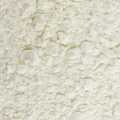
flour 550
1 kg € 3,06 * (€ 3,06 / kg)
NOW AVAILABLE NOW AVAILABLE Delivery of the goods within 36 hours of order and successful payment. Please also note the information on payment and shipping.item number: 40981
NOW AVAILABLE Delivery of the goods within 36 hours of order and successful payment. Please also note the information on payment and shipping.item number: 40981 -
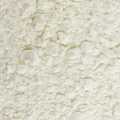
Flour 550, King (new recipe)
25 kg € 47,74 * (€ 1,91 / kg)
NOT AVAILABLE Currently not available. When this product will be available is not known. Please also note the information on payment and shipping.item number: 40982
Currently not available. When this product will be available is not known. Please also note the information on payment and shipping.item number: 40982 -

Nuvola, soft wheat flour Nuvola Type 0, Caputo
1,000 g € 5,45 * (€ 5,45 / kg)
NOW AVAILABLE NOW AVAILABLE Delivery of the goods within 36 hours of order and successful payment. Please also note the information on payment and shipping.item number: 41122
NOW AVAILABLE Delivery of the goods within 36 hours of order and successful payment. Please also note the information on payment and shipping.item number: 41122 -

Pizzeria, soft wheat flour type 00, Caputo
25 kg € 62,52 * (€ 2,50 / kg)
NOW AVAILABLE NOW AVAILABLE Delivery of the goods within 36 hours of order and successful payment. Please also note the information on payment and shipping.item number: 41123
NOW AVAILABLE Delivery of the goods within 36 hours of order and successful payment. Please also note the information on payment and shipping.item number: 41123







